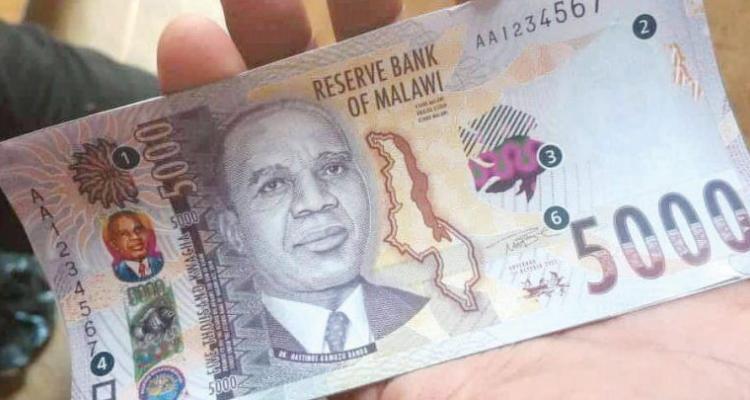
Our system of governance is inherited, so are our markets and their economic frameworks. The European and American powers who constituted our government and engineered the macroeconomic policies that control our markets, for not valuing our context, planted within it the seeds of its own destruction. Our continent is by far heavily disadvantaged from this. In review, 7 of the 10 failed states come from our land (Annual Failed States Index). By measure of Gross Domestic Product (GDP), Gross National Income (GNI), and Purchasing Power Parity (PPP), 23 of the 27 poorest countries are African too (World Bank Index). Why Africa? Reflectively, why Malawi?
They programmed a threshold to which our economies and democracies can not thrive beyond. That explains the stagnation, and in most parts, the continual collapse of economies and governments right from the colonial era. Contextually, this is largely true in countries relegated as third worlds. Countries whose economies are agrarian based or are only producing on the basis of basic economic theory of the factors of land, manual and undeveloped human labor, and have unstructured capital expenditure. Which is why Malawi has found it impossible to replicate or capitalize on the 2006 8.4% GDP growth rebound from 2.2% in 2005. Let alone maintain the annual GDP growth rate of 6% to achieve meaningful poverty reduction. It is about the industry or economic sector that benchmarked our development strategy and the systems that control it.
Nevertheless, the Malawian economy, like the Asian countries of Singapore, Malaysia, and even Luanda, is presented with an opportunity to restructure its capacity and drive itself towards an economic rejuvenation. It is a brush rebellion against its economic history, geography, and expectation, yet the awakening strategy rests in the revision of our nation’s wealth creation model.
The listed last generations third world nations of Asia are now part of the first world league. How so? Were their governments and markets not programmed to fail? Times and seasons have changed. The paradigms have shifted. With it the focus and locus of development. From the pre-industrial agrarian economy to industrial economy to the post-industrial service economy to the last generation knowledge economy; the factors of production have greatly evolved. In this information society, it is no longer just an economy driven by the factor of knowledge. The human capital structure, second to intellectual capital, has added the segment of innovation capital. With this additive constituent, the knowledge model is endowed with the capacity to make any nation rise against the presumed destiny of free fall. Creative Economy within the universal set of Knowledge Based Economy is that model that Malawi must leverage on. It rests on innovation. The creative economy paradigm when harnessed, acts as a mechanism of restructuring the economies and governance of nations.
The wealth creation model Caswel Mkanda and the Uthunthu are after, falls within the confines of this creative economy model. It is the same model, Kondwani Kachamba and the PIC, Bushiri and the conglomeration of Goshen, and Sukez and the FAMA have patterned themselves after. What does that entail? We are no longer just agrarian. We are adding innovation to it. We have extended focus on commercializing creativity and innovation. That is what creative economy is all about. In the short run, we have seen the market relatively responding to this paradigm shift.
But how much of this model will deliver in such a country like Malawi in the long run? Which is why I second the move FAMA took to propose for policy adjustments during the 2023 National Budget Consultation towards our creative sector. This remains the proposal I project to other related creative based enterprises. Enough of people and creative work without policy adjustments will create a generation of frustrated entrepreneurs in the long run (sustainability effect in light of the law of diminishing returns). Innovation must rise along with structures that sustain it, much of which is the work of particular ministries within our government system. Making the most of this paradigm calls for structuring and organization of these emerging national production networks. Maximization of economic revolutions is a matter of policy choice.
Overcoming governance and economic crisis that rise due to ill-crafted economic models requires starting a new wave of innovation. And Caswel, Kachamba, and Sukez are not the only people pioneering and representing the face of innovation that is disrupting our markets. Rasheed Kasito and the Sanwecka, and the MHub are other formative and revolutionary agendas that need to be attended to. For sure, if we can network these structures and many others, Malawi will have left behind a trail of poverty by the end of this generation.
This is one critical juncture that should never be missed. I must admit, the rallied mood and overall sentiment created through these initiatives do matter, but the crucial factors to sustain that are the institutional and organizational networks. At a national level, appropriate institutional structures, from education systems to regulatory to policy, are assets for nations that seek to secure economic competitiveness. I won’t be presumptuous to emphasize that, like any other economy, the creative economy from which we are benchmarking our immediate development framework, functions in a certain legal environment and the government plays an important part: the role of the state in this stance is to create and support the infrastructure provision of the creative industry.
This audacious vision, this brisk, this business model, this rigorous goal that stresses creativity, initiative, entrepreneurship, private enterprise, and self-reliance needs to be supported to the ultimate because a strong middle class is the key to economic stability in any country. It has been proven that the agendas of Caswel, Kachamba, Sukez, and Rasheed, among others, serve to pull the majority from lower to economically middle class, hence, development. Along with them, I share the same belief that Malawi will triumph over history, soar towards prosperity, and restore its economic dignity. Until then, let us not act as if something great is not underway.













